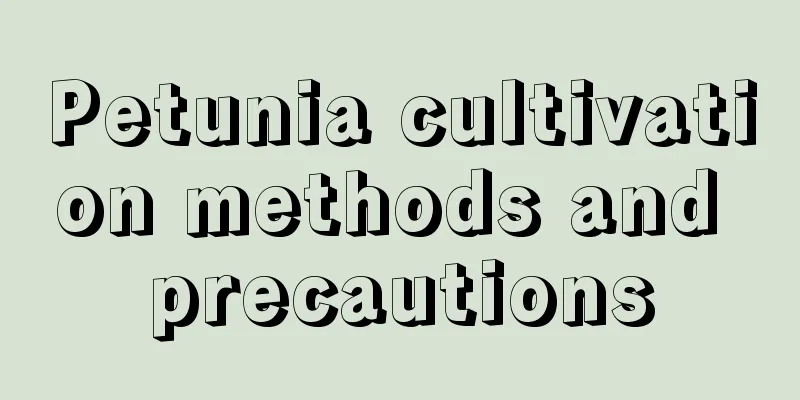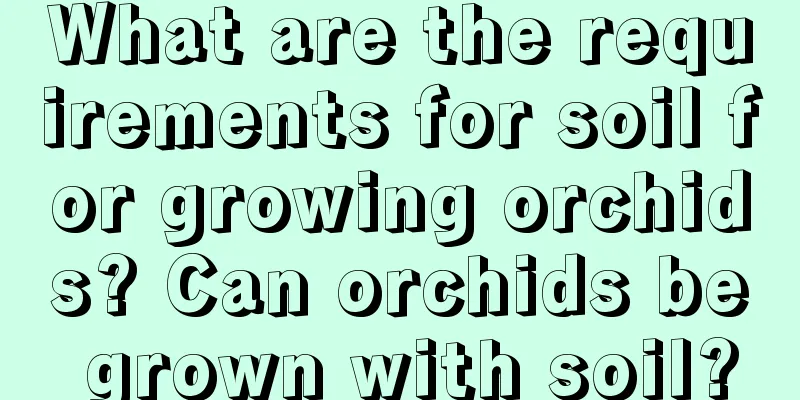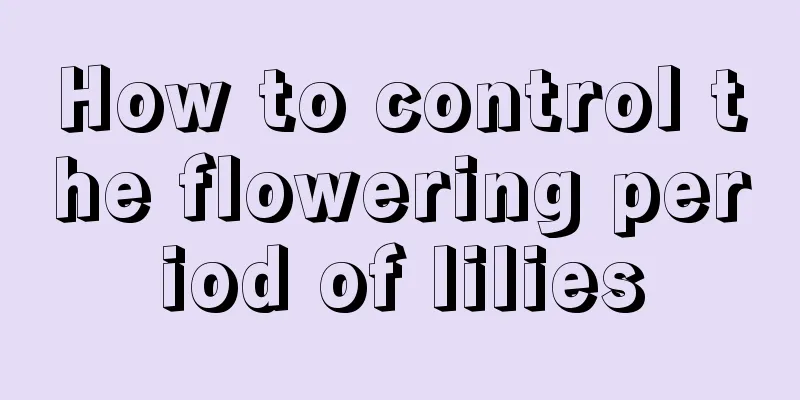Petunia cultivation methods and precautions

|
Petunia is loved by flower lovers for its short plants and luxuriant flowers. It can be easily grown to a full-size effect, and its flowers are diverse in colors and highly ornamental. However, many flower lovers will encounter some difficulties during the maintenance process. The following are the cultivation methods and precautions for petunias to help you better care for petunias. 1. Choose the right flower pot and soil The roots of petunias are shallow and will not penetrate deep into the soil, so they are suitable for short and fat flower pots. The soil should be air-permeable and well-drained, such as a mixture of leaf mold and sand, to promote the healthy growth of its capillary roots. 2. Adequate lighting Petunias require full sun to support their year-round flowering characteristics. Lack of light will cause the plant to grow weak and have difficulty flowering. 3. Reasonable watering During the growth and flowering period, petunia requires a lot of water, but avoid waterlogging. The principle of watering is "water when dry and water when wet", that is, water thoroughly after the surface of the soil in the pot is dry, and avoid frequent watering which may cause root rot. 4. Apply fertilizer at the right time In the early stages of growth, use high-nitrogen fertilizers to promote branch and leaf growth; when the plant grows to the desired size, switch to phosphorus and potassium fertilizers, such as potassium dihydrogen phosphate, to promote flower bud differentiation and flower opening. 5. Pruning and shaping Pruning can help to encourage lateral growth and increase the number of flowers. During the growing season, top the newly grown side branches, keep two leaves and then cut off the top to stimulate the growth of side buds. After the plant has formed the ideal shape, stop pruning to promote the formation of flower buds. 6. Temperature management Petunia is not resistant to low temperatures, and the most suitable growth temperature is above 10℃. In winter, the temperature must be kept above 5°C to avoid plant wilting due to low temperature. 7. Pest and disease control Pay attention to the plants, detect and deal with pests and diseases in a timely manner, and keep the plants healthy. 8. Reproduction method Petunia can be propagated by cuttings or seeds. When taking cuttings, choose healthy branches, insert them into a moist medium, provide shade and keep them moist to facilitate rooting. The above are the key points for caring for petunias. Through the above maintenance points, petunias can thrive and bloom beautiful flowers. Remember, patience and carefulness are the key to growing petunias well.
|
<<: The reasons and solutions for the yellowing of yew leaves
>>: The best way to raise fish in rice fields
Recommend
Dahlia cultivation methods and precautions
Dahlia has bright colors and a long flowering per...
How to grow cowpea on the balcony
Seedling cultivation Cowpeas are usually sown dir...
What soil should be used for Mentiya yew
1. pH It needs slightly acidic soil, and the pH o...
When is the best season to plant lettuce?
Lettuce planting season and time Common lettuce v...
How to propagate money grass and how to grow it fast
1. How to reproduce 1. Seeds: Its seeds have a ve...
How to care for orchids after replanting with empty roots
1. Maintenance after replanting 1. Water: After r...
Advantages and Disadvantages of Cherry Brandy Rose
Cherry Brandy rose is an ornamental rose bred in ...
Can coral beans be placed in the bedroom?
1. Is it possible? The answer is: No. The growers...
How to make golden bud flowers bloom all year round
Tips for the flowering of golden buds all year ro...
Is it better to grow garlic in water or soil?
Is it better to grow garlic in water or soil? Whe...
How to prune the juniper bonsai
When is the best time to prune juniper bonsai? Th...
Cutting propagation method of Sansevieria
Cutting time Tiger tail orchid can be propagated ...
How to grow the weeping angel in autumn
1. Maintenance factors 1. Temperature: It is a pl...
How to grow red succulent plants and what pots to use
1. How to grow the little red succulent 1. Soil: ...
Cultivation methods and precautions of pineapple flowers
1. Soil When breeding, you need to use well-drain...









